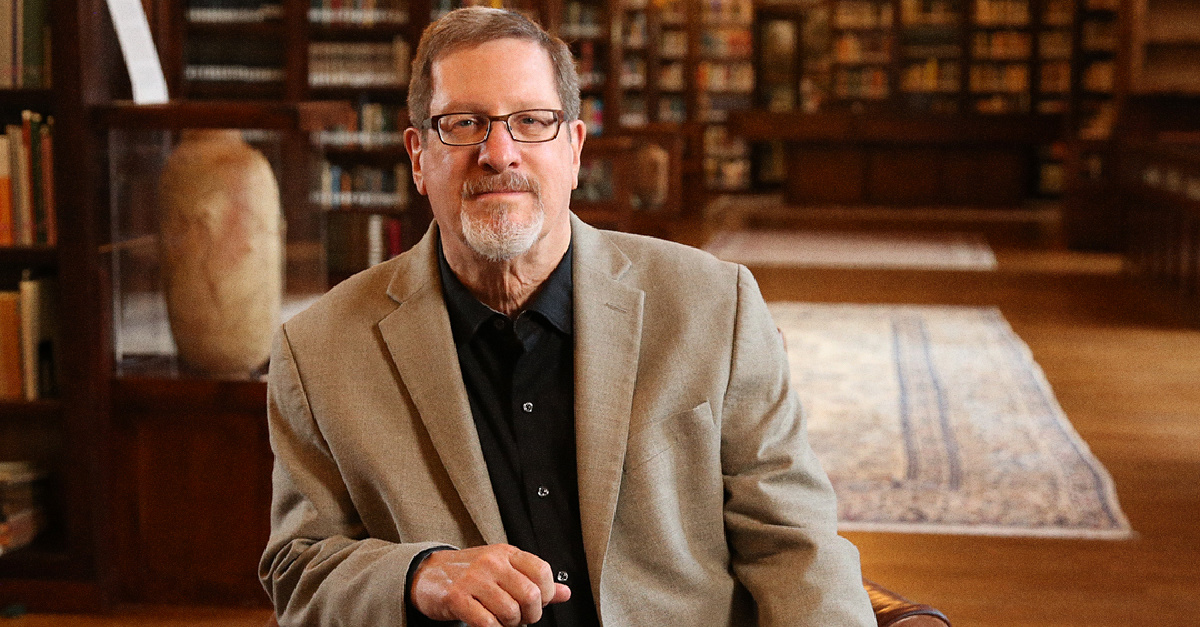
Influential best-selling author Lee Strobel is on a mission to convince people God is real. Strobel wants to help believers and non-believers understand God’s power and authenticity in his new book, “Is God Real.” This isn’t the first project Strobel has tackled in trying to lay out this question. In his New York Times best-selling book, “Case for Christ,” Strobel, a former journalist, knew he was on a mission to help lay out facts for skeptics like he once was.
“I was trained in journalism. We used to have six deadlines at the Chicago Tribune. I’m deadline-driven. If I’m not on a deadline, I’m playing with my grandkids. I’m very much driven by when the project is due. This project was so life-giving. I was actually going through an era in my life where I was having some depression issues. I don’t know why; I just felt very down. I started this project, and it lifted my spirits and reminded me that we serve a very real God.”
For Strobel, this project was personal to him, not only due to his battle with depression but also with long-term COVID-19.
“Writing this book reignited me in many ways. Part of it fed the skillset God has given me to edit, write, and research. I love doing that. Focusing on the question, ‘Is God real?’ reinforced my life. Of course, he’s real. Of course, he’s there, and of course, he’s undergirding and enabling me to do everything that I do. Of course, I’m going to spend eternity with him. It was a reaffirmation of my faith in Christ.”
It’s the same reaffirmation Strobel wants to encourage believers to have while helping people who are non-believers consider that God is real. For both groups, the goal is for them to understand that questions on God’s existence are acceptable.
“I’ve got a lot of questions. I’m a journalist. It’s natural to have questions on the reader’s behalf alongside answers I am researching for myself.” Strobel said he’s hoping his book will help people get answers to their questions. He believes that more than ever, people have questions about the existence of God, especially young adults.
“I met my wife when we were 14 years old in 1966. At that time, 98% of American adults believed in God; today, the number is 81%, the lowest in history. If you look at Generation Z, it’s even higher. They’ve been called the first post-Christian generation. Twice as many members of Generation Z call themselves atheists as older people do. We face a culture of challenge, skepticism, and even hostility toward faith. We’re seeing young people challenged in their faith in a way previous generations weren’t. Many are unprepared to talk about why they believe what they believe. One of the reasons I wrote this book is for parents to help equip their kids to understand why our faith makes sense.”
When asked why he thinks accepting God is a challenge for Generation Z, Strobel believes it’s based on their culture and environment.
“We have more social media. We have people on email, Twitter, and so forth, yet the youngest generations feel incredibly lonely. They have been through a season of turmoil from COVID-19 and other issues they’ve faced.”
However, Strobel believes God is moving in this generation and that we shouldn’t give up hope.
“People are looking up and saying, even in the midst of what we’re going through and have been through, there are real answers in Christ.”
Strobel also sought out other top-tier apologists to help him navigate the topic and the questions that people may have.
“When I have a topic I want to research, I look at several things. First, I look at the personal life of my research sources. I want people who are authentic. Secondly, I want scholars. I want experts. Most of the people I interviewed have at least one PhD. I want people who have thought deeply about these issues. I’ll generally read ten books or major articles they’ve published to understand where they’re coming from and who they are. I also want people who can articulate why they believe what they believe, can point to evidence and not just opinions, and back up their assertions with scholarly data.”
Strobel believes even in times like this, God is not only still working and in control but remains the ultimate answer for such a time as this moment in American history.
“He’s the only answer. I know when times are hard, things are confusing, and trauma enters our culture, I cling closer to God. When times are good, there are no problems, and everything’s going along great, I tend to drift away a little in my spiritual life. In 2011, I almost died. I was hanging between life and death for several days and sought God during that time in my life, just as I did when I lost my brother to COVID-19. So, as difficult as these days are, I pray it’ll cause more people to seek out the one true God as the ultimate answer for the turmoil we find ourselves in and realize that God is real.”
Photo Courtesy: ©Case for Heaven/Fathom, used with permission
Related podcast:
The views and opinions expressed in this podcast are those of the speakers and do not necessarily reflect the views or positions of Salem Web Network and Salem Media Group.
